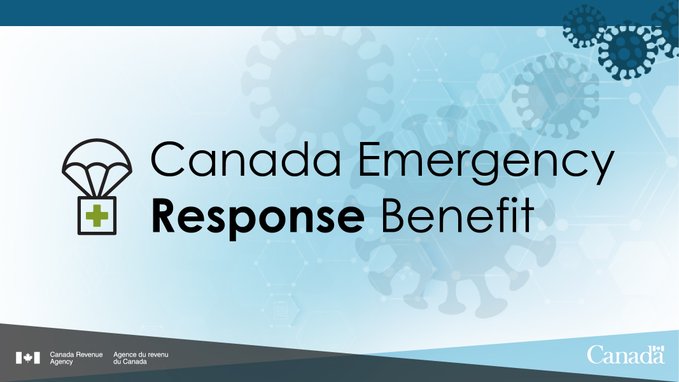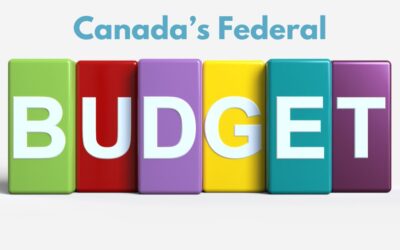The Government of Canada has stepped up to roll out in a fairly timely fashion a catch-all income relief benefit for those who have lost income due to COVID-19. While financial and accounting people are making every effort to answer questions applicable to unique situations, all while interpreting a changing program and public documentation, responses here and elsewhere are simply my interpretation of all that I’ve read about the benefit that’s become available. Also, when looking at particular situations, any questioning of eligibility will be done at a later date so if you have reason to believe that you should be eligible for the benefit based on the criteria outlined on the CRA website, then apply and if there’s a question later you can justify it then. This benefit is designed to get money in the hands of those who need it right now. {Updated May 6, 2020}
Here are some of the Frequently Asked Questions that have come my way:
1. My self-employment income has gone to $0 for the foreseeable future. I have rental income, but after my expenses I only “profit” about $150 monthly. Am I eligible for the CERB Benefit?
You ARE eligible. In order to be eligible for CERB you can have up to $1000 of self-employment or employment income during the period of application. Since rental income is not employment income, you’re eligible for the benefit.
2. If I’m self-employed and take deposits for future services, would this disqualify me for the CERB Benefit?
It may. If your accountant has your business on a cash accounting system, meaning that you count money as income when it’s received, regardless of the date of service, then it would count as employment income and disqualify you for the benefit for that next month. If you currently are not receiving any deposits (but hope you will be), then apply and since you have to renew your application monthly you can take it on a month-by-month basis.
Keep in mind that you CAN take up to $1000 per benefit period and still be eligible for the CERB.
3. I’ve realized now that the income I was expecting in a previous benefit period is not more than $1000. Am I able to apply for a previous benefit period after it’s passed?
Yes! Just as you would apply for the regular CERB Benefit, you can choose a previous benefit period to apply for.
4. If I have a blend of employment and self-employment income, and have lost both as a result of COVID-19, should I apply under EI or CERB?
You would be put under the CERB program, even if you’ve already applied for EI. The CERB benefit would likely offer a larger amount of money which would compensate you partially for both streams of income you’ve lost, but you can’t apply under each program.
5. I’m seeing headlines stating that people may have to pay back the CERB Benefit. Who does this apply to?
This is applicable to those who are not eligible for the benefit, such as individuals who are currently receiving ODSP or other benefit and are not otherwise able to work, as well as individuals who perhaps are not able to go to their job right now, but are alternatively receiving compensation from their employer through the Canada Employer Wage Subsidy package that’s now started putting money directly in the hands of employers to keep paying their employees while they’re closed. If you’re unable to work or are experiencing reduced hours because of COVID-19, and are NOT receiving income from your employer or other government source, your CERB benefit is safe.
Remember that this benefit isn’t for anyone to receive “free money”, but rather for those whose employment income has been impacted by COVID-19.
6. When do I re-apply for my CERB Benefit?
If you applied directly through the CRA website, you apply/re-apply the day of the week that applies to your month of birth during the FIRST WEEK of the eligibility period.
| Eligibility period | Start and end date |
|---|---|
| 1 | March 15, 2020 to April 11, 2020 |
| 2 | April 12, 2020 to May 9, 2020 |
| 3 | May 10, 2020 to June 6, 2020 |
| 4 | June 7, 2020 to July 4, 2020 |
| 5 | July 5, 2020 to August 1, 2020 |
| 6 | August 2, 2020 to August 29, 2020 |
| 7 | August 30, 2020 to September 26, 2020 |
| If you were born in the month of | Apply for CERB on | |
|---|---|---|
| January, February or March | Mondays | |
| April, May, or June | Tuesdays | |
| July, August, or September | Wednesdays | |
| October, November, or December | Thursdays | |
| Any month | Fridays, Saturdays and Sundays |
If you filed for EI through Service Canada and were automatically moved over to the CERB Benefit, you have different reporting standards, and will have to report every 2 weeks. The next report due date will be expressed upon completion of a report filing, and is made through your Service Canada/EI portal, NOT CRA.
7. I have no income, but was in school full-time. I’m a single mom, with a school-aged child and now that my child is home and both schools are closed, I’m not able to earn an income to supplement my expenses right now. Should I apply for CERB?
This one’s a bit tricky, because you’ve not lost employment income, however, are not able to gain employment because of needing to be home for childcare purposes. I would recommend reviewing other benefits before looking at CERB, such as Ontario Works, as there may be more benefit and a longer period for you to receive benefit.
8. My high school student had a job lined up for the summer, but just received word that he won’t be employed there until they re-open. He’ll be graduating and was counting on that money for post-secondary education expenses. Can he apply for the CERB Benefit?
No. Since this was a job that he was not currently at and earning an income from prior to COVID-19, he would not be eligible for any benefit because there is no previously-earned employment income lost. He’d be best to find a job elsewhere as there are other companies currently hiring for temporary relief.
9. I’m self-employed and my business has a few part-time contract workers. What assistance can I get as an employer, and can give my team?
Since you’ve only got contract workers, technically they are self-employed and would be eligible for the CERB Benefit if they no longer had any income from any sources. Also, you would be eligible for the CERB benefit as self-employed if your business is not earning any income as a result of the COVID-19 crisis. Work with your team to make sure everyone is getting the support they need, and be sure to communicate your expectations for future work.
10. I have a business that’s incorporated, and our income has been reduced to minimal, barely enough to cover our overhead. As the “owner”, I’m paid as an employee. Would I be eligible for the CERB Benefit?
Again, this is a grey area and one could get into ownership versus corporation, etc. Since you’re T4’d as an employee, I would say YES, apply for CERB as long as you’re not taking any income from the business. It sounds like you wouldn’t have any available to take right now anyway, so make sure that your personal expenses are relieved through CERB, and keep the minimal business revenue for those business expenses that need to be paid.





0 Comments